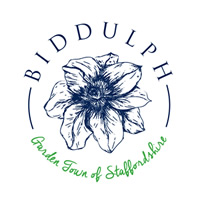Our Environment and Climate Change Priorities
Biddulph Town Council held it’s first ‘Environment and Climate Change Working Group’ meeting in July 2019, to formulate a strategy and action plan for Biddulph, linking with the Neighbourhood Plan, our Tree Charter commitments and existing work within the town, such as ‘Biddulph in Bloom’. A public meeting was facilitated in September 2019 to generate ideas, which were subsequently developed into an action plan.
Biddulph Town Council declared a climate emergency in 2019. At the Annual Meeting of the Town Council in May 2023, Councillors reaffirmed this declaration, remaining committed to climate action through effective planning and leading by example through excellent community leadership.
Since that time, the Town Council has continued to consult with our community in relation to their priorities, and to move forward our aspirations.
We recognise that we have an important role to play in our community. As a Town Council, we do not have the same statutory powers or duties as some of our larger Council colleagues. But, as guardians of our town’s assets and communities, we have an obligation to use our expertise, our time and our thought to protect the environment around us, enhancing wellbeing and creating a lasting legacy for our children.
In January 2025, we published our ‘Caring for our Environment’ plan. You can read the document here: Environment Plan This will be reviewed annually, and is supported by an action plan that is reviewed by the Town and Community Committee.
What can we all do?
- Drive less and walk or cycle more, especially for short journeys.
- Car share or use public transport.
- Cut grass less frequently and allow more space for nature, increasing wildflower areas.
- Create a ‘Bug Hotel’ to provide a safe place for wildlife – using natural materials such as pinecones, straw, etc – it’s a great way to get children involved.
- Home compost to reduce the amount of household waste sent to landfill.
- Conserve water – use grey/rainwater on our gardens.
- Organise a litter pick.
- Purchase locally.
- Avoid single use plastic. Use a re-refillable water bottle/lunch box.
- Use low energy light bulbs.
- Switch off unneeded lights and turn down heating.
- Reduce/Reuse/Recyle – waste less food – see tips for reducing your food waste at lovefoodhatewaste.com. Do you need it? Can you fix it or give it to someone else? Can it be used in another way? See www.recycling-guide.org.uk.
- Donate the quality products you no longer require to the two charity shops in Biddulph (Douglas Macmillan, 63 High Street and British Red Cross, 3 High Street).
- Sell your unwanted goods on internet auction sites.
- Sign up to paperless services – eg newsletters via email.
- Spread the message – share best practices.
Recycling – A Quick Guide to Your Bin Collection
Grey Bin – Recycling
The materials from this bin are sorted and sent to be re-used to make new products.
Aerosols and cartons
Glass bottles and jars
Greetings cards (no glitter)
Paper and cardboard
Plastic bottles, pots, tubs and trays
Food tins and drink cans
Tin foil
Brown Bin – Recycling Food and Garden Plant Waste
The contents from this bin are processed into compost.
Cooked and uncooked food waste (taken out of it’s packaging)
Fruit and vegetable peelings
Meat, fish and bones
Dead flowers
Egg shells
Grass cuttings
Hedge trimmings
Weeds (not Japanese Knotweed or Ragwort)
Leaves and windfall fruit
Tea bags
Blue lidded bin – General Waste
For more information, here’s a link to Staffordshire Moorlands District Council’s Bins and Recycling page:
https://www.staffsmoorlands.gov.uk/article/497/Bins-and-recycling
Recycle Medical Equipment
Staffordshire County Council partners with Grace Cares to recycle preloved care and medical equipment. Unwanted items can be donated at the collection points at the household waste recycling centres (otherwise known as tips). Typical items donated include walking aids, bathroom equipment, bed risers and commodes. Any unwanted care aids on loan should be returned to the provider.
Grace Cares clean, repair, and refurbish the equipment as needed, ensuring it’s safe and ready for someone new to use. This not only helps individuals who might otherwise struggle to afford these items, but it also keeps perfectly usable equipment out of landfill, benefiting the environment for everyone.
Recycle Paint
If you are a resident, you can drop off leftover paint from your home or collect paint for your home or a local project for FREE at a household waste recycling centre (otherwise known as a tip).
If you’d like to know what volume and range of paint colours; please visit the household waste recycling centre – the staff on site will guide you to the RePaint area.
Flooding
You can find out if the area you live in is at long-term risk of flooding by keying in your postcode at: gov.uk and you can sign up for flood warnings.
You need to provide the address you want flood warnings for, an email address and a way to contact you at any time of the day or night (phone call, text or email).
You can also call Floodline (a 24 hour service) on 0345 988 1188 for flood warning information and general advice.

